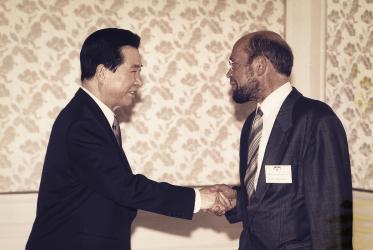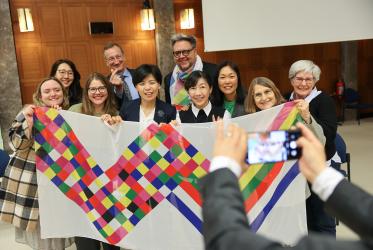Displaying 1 - 20 of 39
Ecumenism in the Philippines means hope and resilience
22 August 2023
La respuesta a las necesidades humanitarias en Ucrania
27 September 2022
Squid Game and Ganggang Sullae: workshop reflects on youth poverty
16 September 2022













